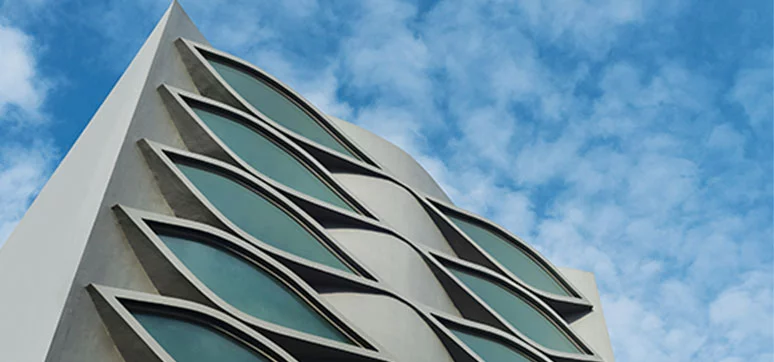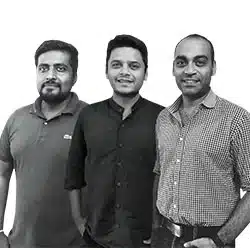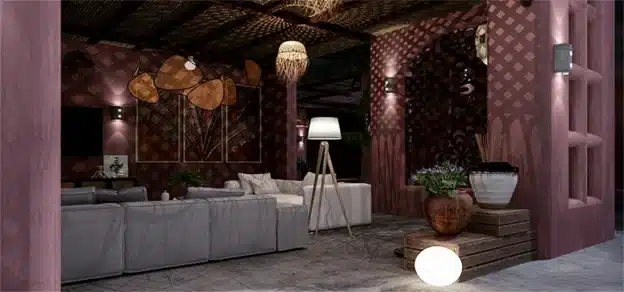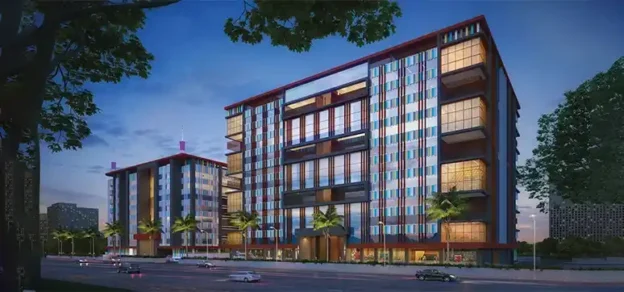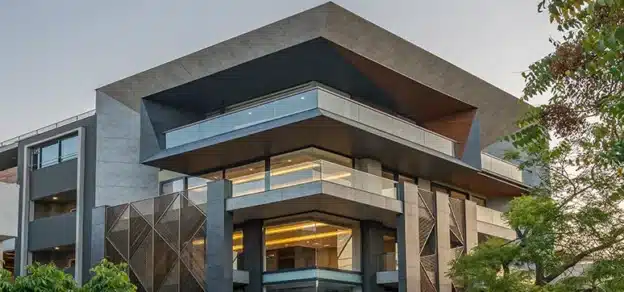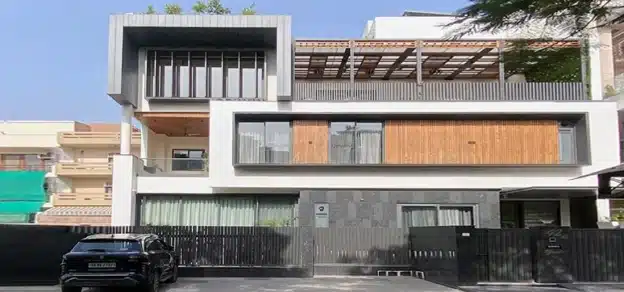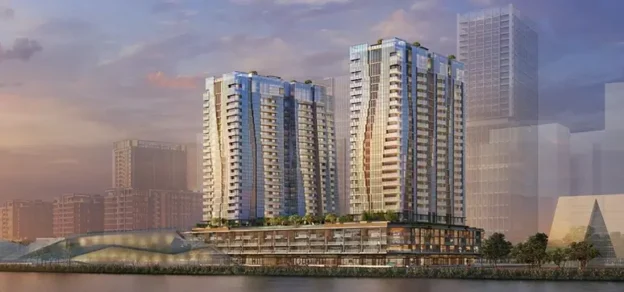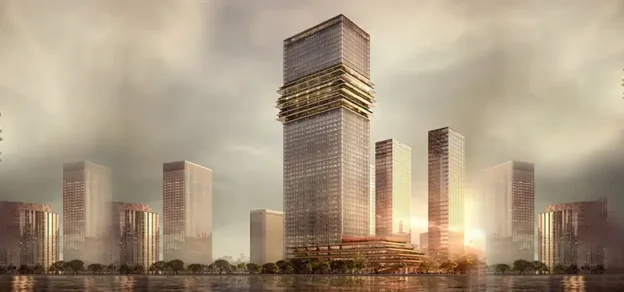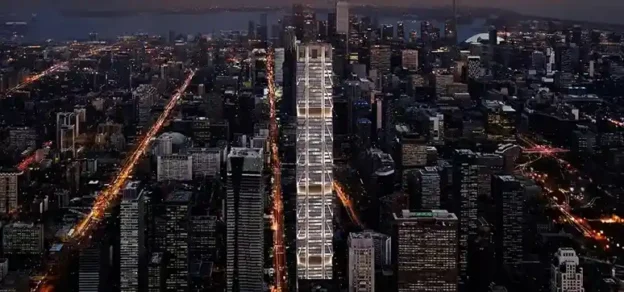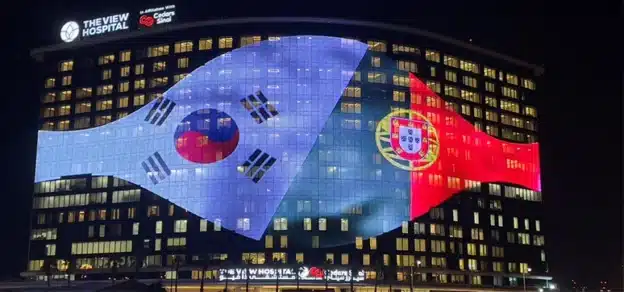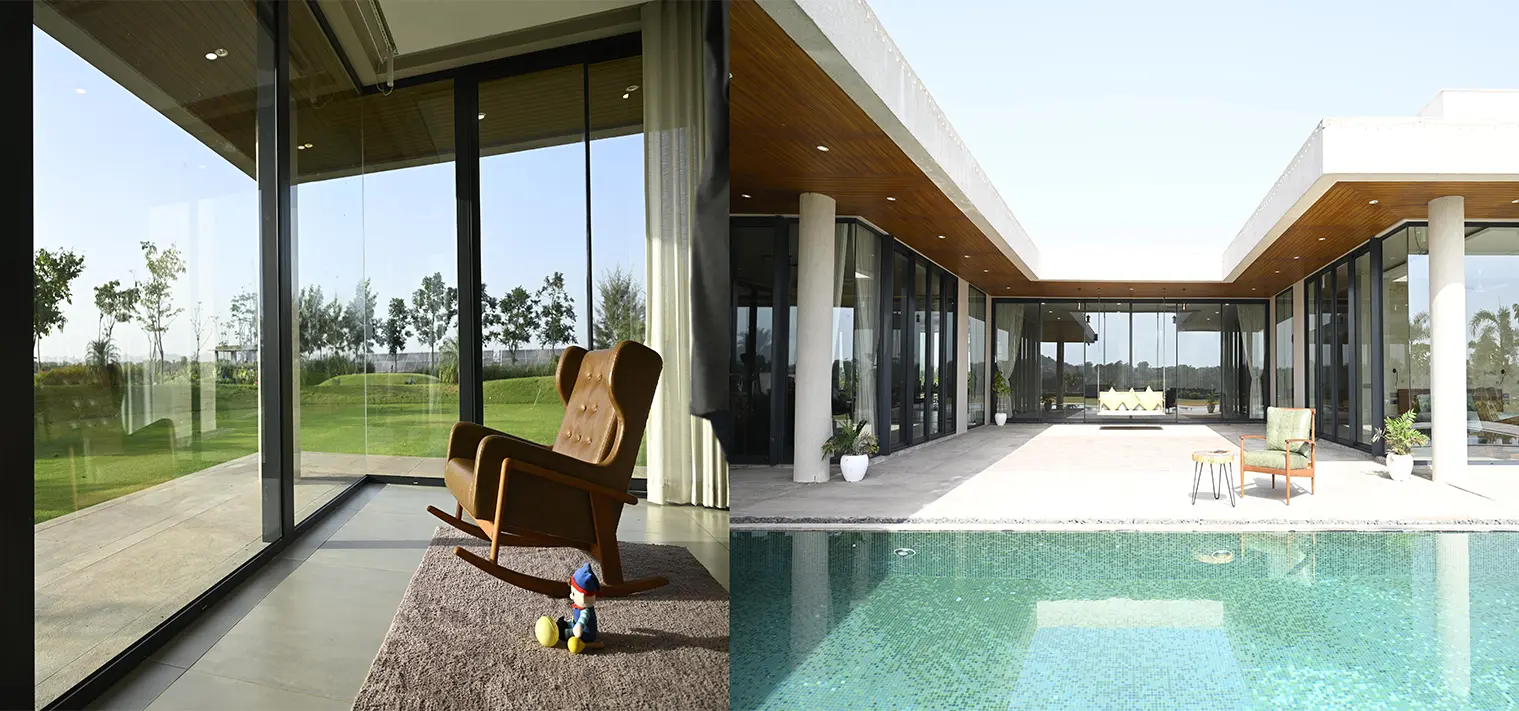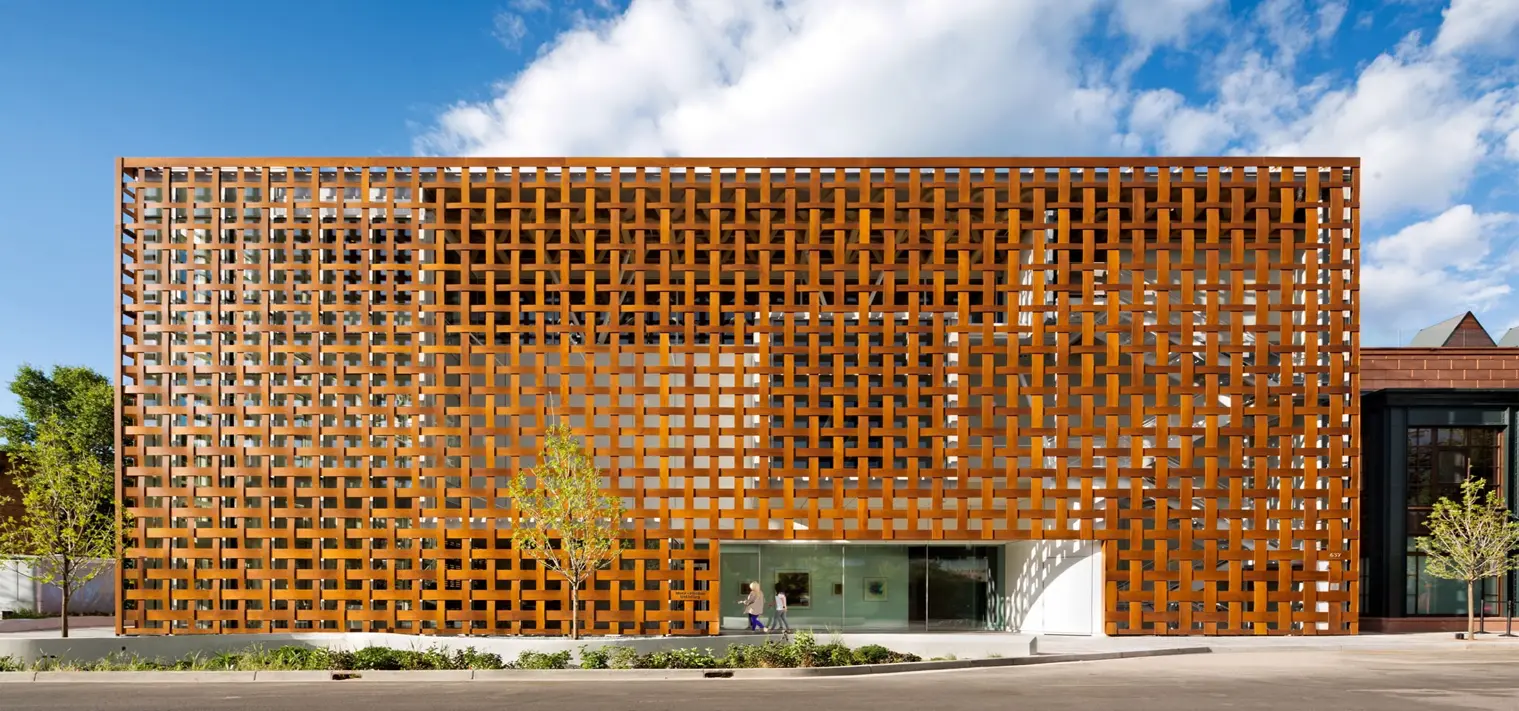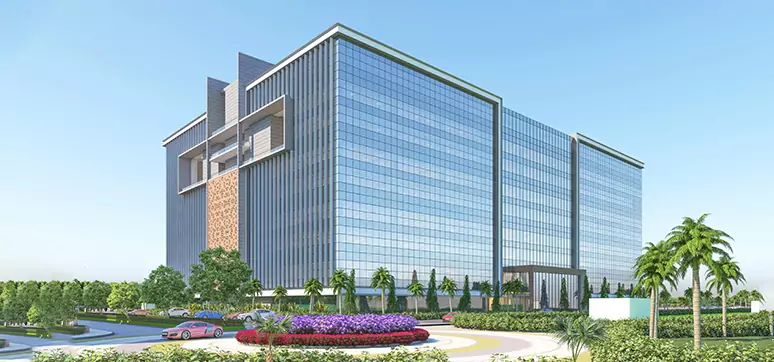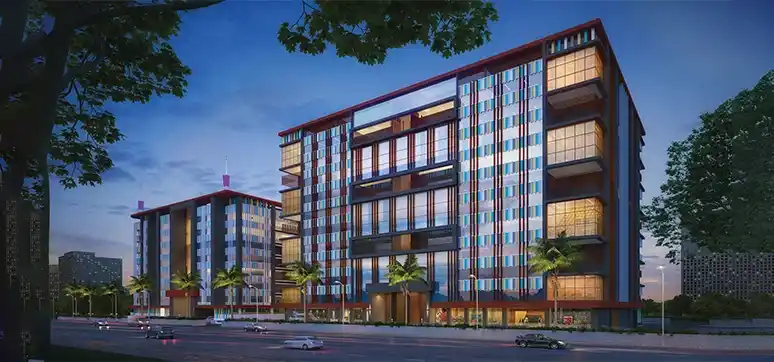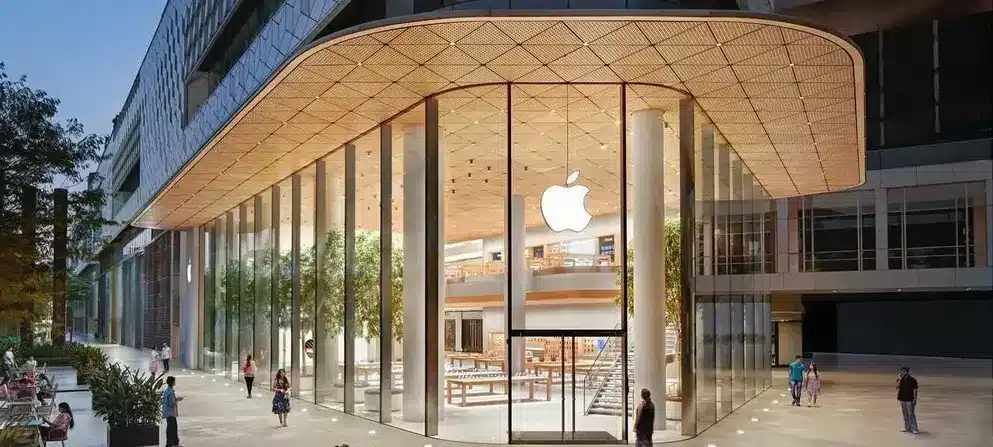A virtually consolidated built-up area of 2,355 square metre spread across four storeys, serves as an office space and storage for a clothing brand. The multi-level office sits in a tight urban setting in South Bengaluru. Underlining refined details that are unobtrusive, the design of the office space is intentionally minimalist, calm and functional, without any extraneous décor elements.
The office space design intent has been to achieve a sense of fluidity in the architectural form that is suited to the client brief. Translation of a sculptural notion into a workable design and construction was a serious challenge that has been bested by the use of digital media and physical models as reference prototypes for execution on site.
The effect of fluidity is achieved by articulating windows in a sculptural manner on the building façade. Litany of a sinuous pattern to morph the number of floors is abetted to distort the visual perception from the exterior. Reinterpreting the traditional concept of chajjas or overhang over the windows, recessed glass on a patterned façade is wrought to cut out the harsh glare of the sun. Hence, a typical façade not only endows the built volume with a strong visual identity, but also functions as a modern day shading device.
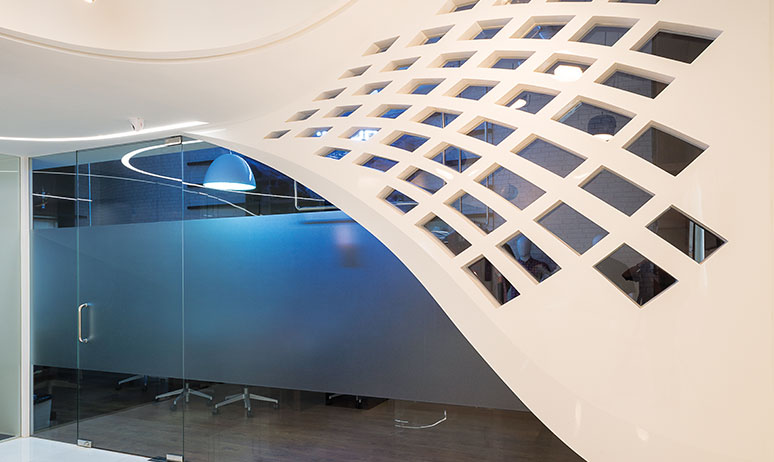
Programmatically, the building is raised on stilts to enable parking on ground. Liberating this space allowed for a thoughtful landscape on site. While the first three floors serve as a storage godown, the fourth floor accommodates a boutique office for the fashion house. A cafeteria and break out zones are housed on the The design articulates various functions segregating public and private spaces landscaped terrace above.
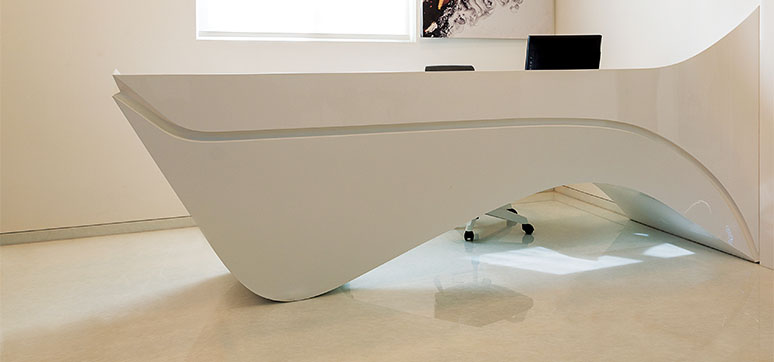
Inclined at creating an environment where people can live and work, the design is thoughtfully steered at influencing human behaviour. The entire workspace adorns white colour, to add calmness and tranquillity. Passive design strategies such as day-lit workspaces, natural ventilation and indoor/outdoor interaction using landscaping have been incorporated to eliminate/avoid the Sick Building Syndrome.
Within the corporate office floor, the design articulates various functions segregating public and private spaces. The individual cabins flaunt bespoke furniture customised to suit client specifications, while the common workstations are equipped with modular furniture by Featherlite, to maximise seating. The custom made furniture in the cabins is subtly sewn in wood, topped with Italian marble to add a sophisticated look and feel.
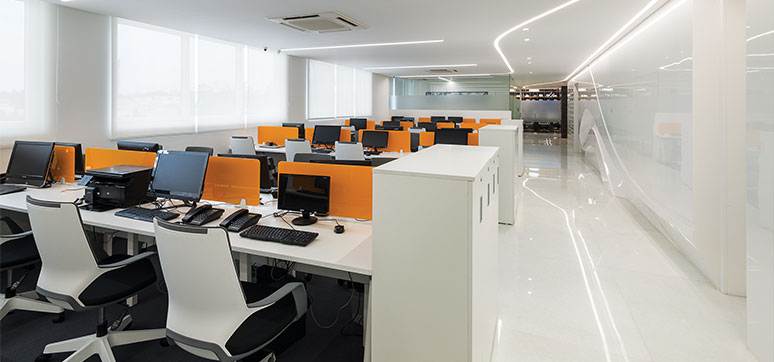
Unlike most contemporary projects that use neoteric techniques, this commercial workplace uses generic materials like concrete brick and glass, effectively used to create complex fluidic forms on the exterior and interior. Drawing from the qualities of the exterior, the interiors aim to accentuate the fluidity of the space by mapping the surfaces in the ceiling and the walls. Malleable materials such as concrete and glass are used in the exterior while flexible ply and solid surfaces are used to create fluidity in the interiors.
Flexible plywood is used for most of the surfaces in the interiors, adding lightness and an ephemeral finish. All surfaces are finished in a reflective high gloss paint, accentuating the fluidity which is further augmented by means of a seamless reflective skin using polished white Italian marble. Similar strategies are employed in detailing of the false ceiling and the lighting that goes into it. Sinuous lines of fluidity articulate the ceiling to go with the overall scheme of the interiors. Subsequently, the interiors and the exteriors form one cohesive whole.
QUICK FACTS:
Architecture Firm: Cadence Architects, Bangalore
Principal Architects: Smaran Mallesh, Vikram Rajashekar, Narendra Pirgal
Typology: Commercial Complex
Built up Area: 25350 sq. ft.
Site Area: 4600 sq. ft.
Project Completion: June 2017
